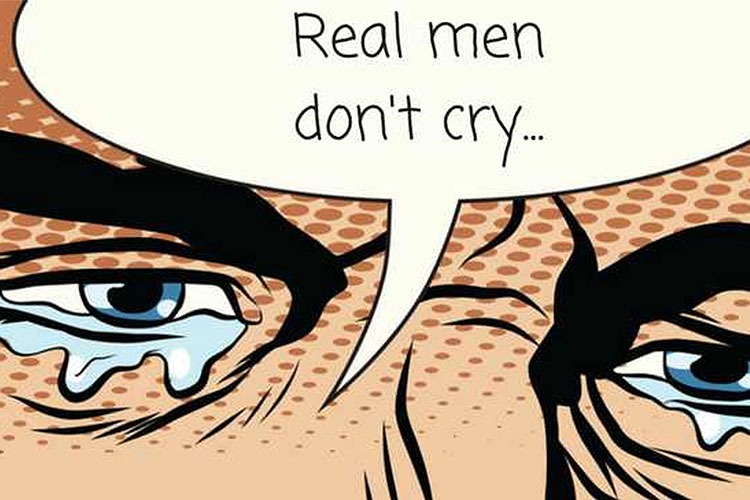DEFINITIONS
CONCLUSIONS
BIBLIOGRAPHY
RESEARCH
QUESTIONNAIRE
Toxic Masculinity
PATRIARCHY
The constellation of socially regressive [masculine] traits that serve to foster domination, the devaluation of women, homophobia, and wanton violence.
Some examples are:
- Aggression
- Sexual aggression or control
- Showing no emotion or suppressing emotions
- Hyper-competitiveness
- Needing to dominate or control others
- A tendency towards or glorification of violence
- Isolation
- Low empathy
- Entitlement
-Chauvinism and sexism
Toxic masculinity is often reinforced by societal attitudes. A 2018 survey by the Pew Research Center, for example, found that respondents attributed protective behaviour as a positive trait for men. Being nurturing or emotional, however, was seen as something negative. Here's the survey results:
Toxic masculinity is often seen as being harmful to others, but men and masculine-identifying face real problems from it, too. Also, this ideology tends to treat cisgender women as sexual conquests, contributing to continuing issues, like in the rape culture.
The problem with toxic masculinity is that was shown since childhood, men are taught that crying is wrong or that they must love football above all things and if they wanted to go to art class or dance, that was for girls and that's not true, anyone can be anything it wants to be, from a great American player to a great artist and that has nothing to do with the sexuality they have. Toxic masculinity did not originate with the women's movement. It was developed in the men's movement of the 1980s and 1990s, motivated in part as a reaction to second-wave feminism. Through exclusive workshops for men, nature retreats and drum circles, this movement promoted a masculine spirituality to rescue what it called “deep masculinity,” a protective and “warrior” masculinity, from toxic masculinity. The aggression and frustration of men were, according to the movement, the result of a society that feminized children by denying them the rites and rituals necessary to realize their true selves as men.

Two real examples of male toxicity:
-Phil Chan, a digital artist from California explained that his father never told him that he loved him, although he knew that he did. He never hugged her either. Even now that he's in his 80s, Chan would love for him to tell him.
Specialists express that one of the disadvantages of toxic masculinity is that feelings and things that could be "feminine" are denied and this causes it to be seen as something negative and in the long run, generates greater problems such as violence or frustration that can lead to suicide, in fact, men commit this act more than women.
-Gin Lowdean, a woman from Edinburgh, her 4-year-old son told her he didn't want to be a dad when he grew up. Instead, he wanted to be a mom. When Gin pointed out that most men don't become mothers, the boy was saddened because dads have to work all the time, they can never dance and no one hugs them.